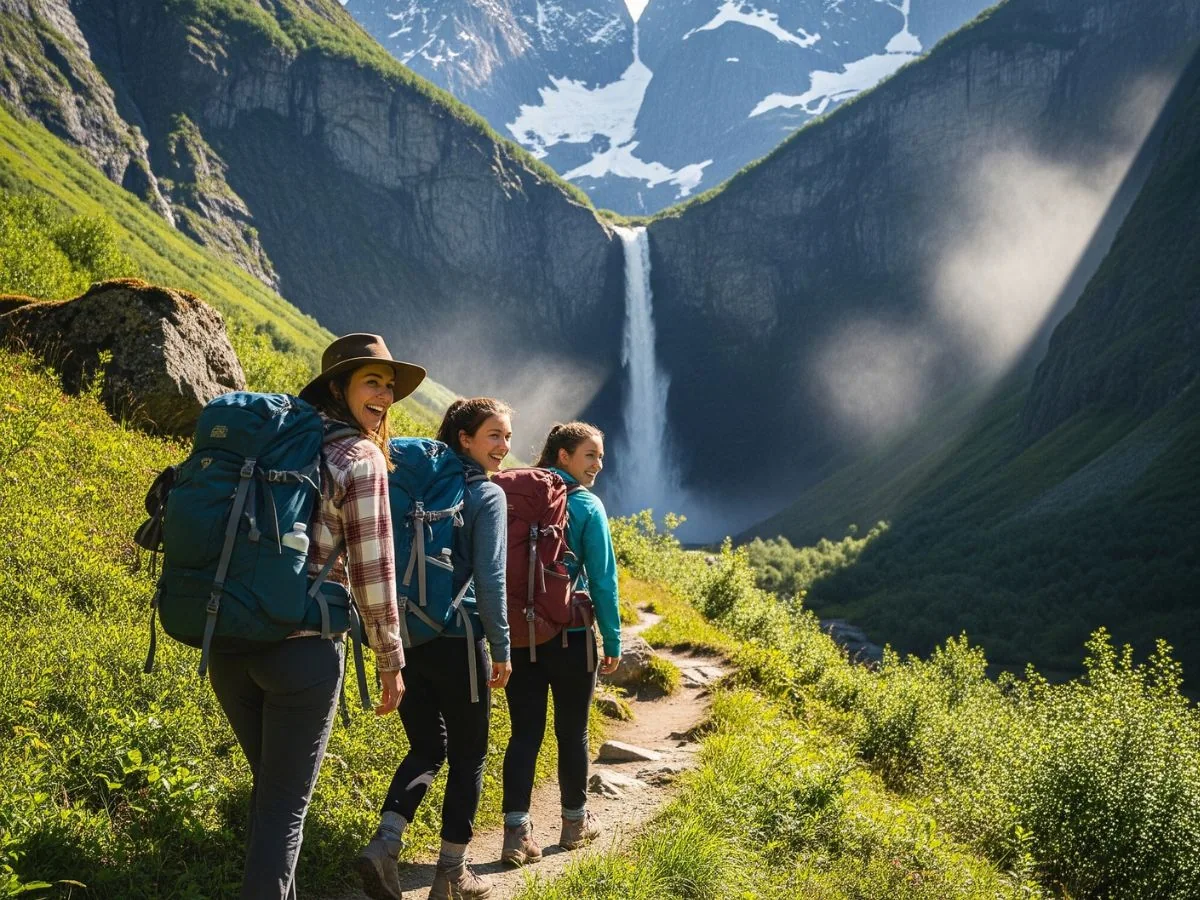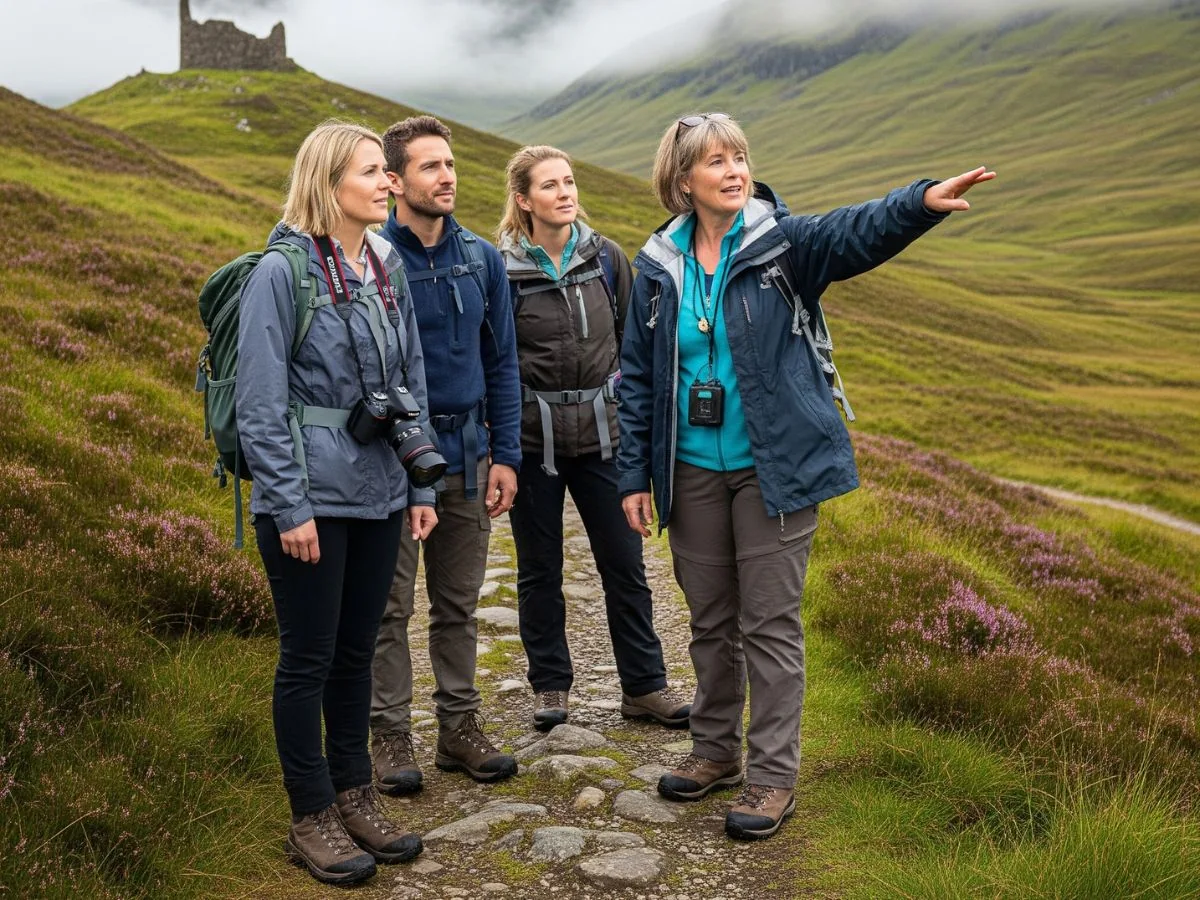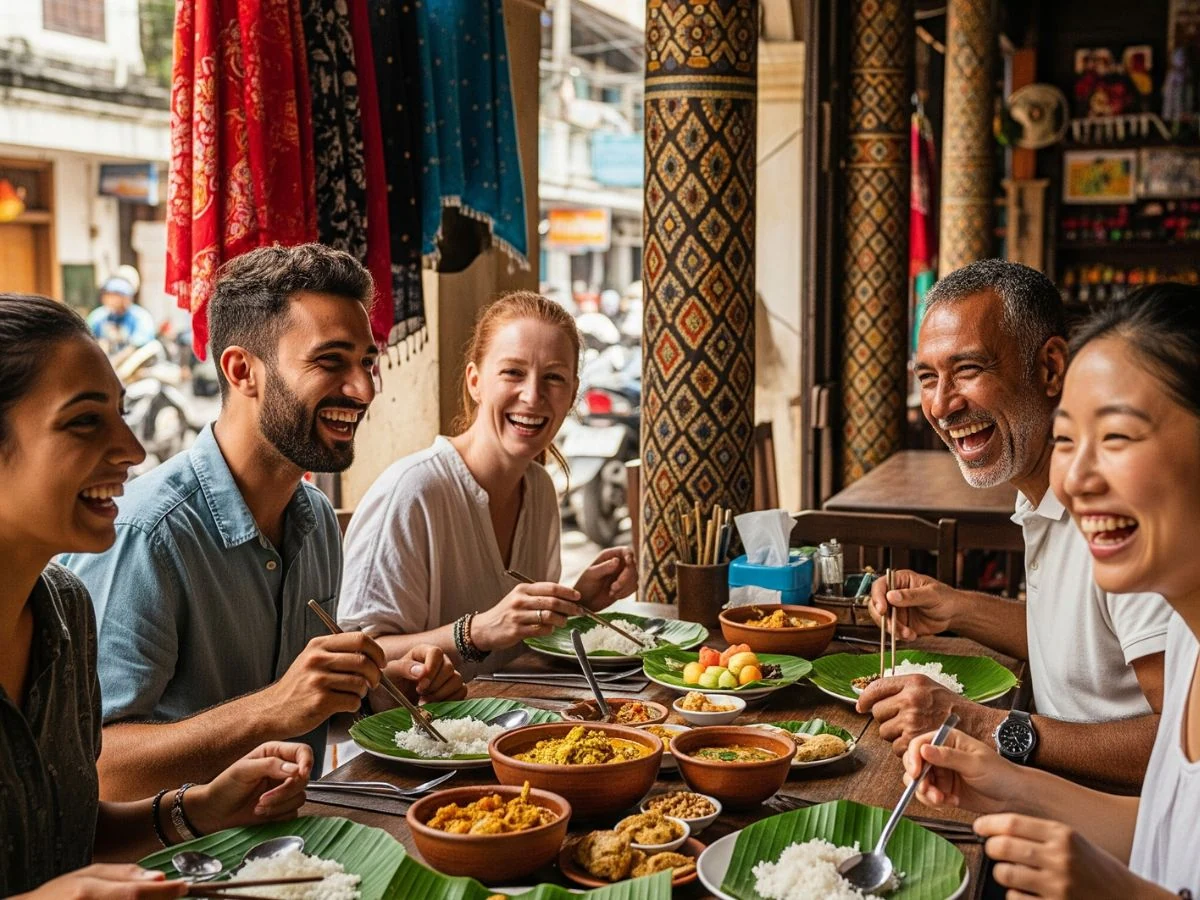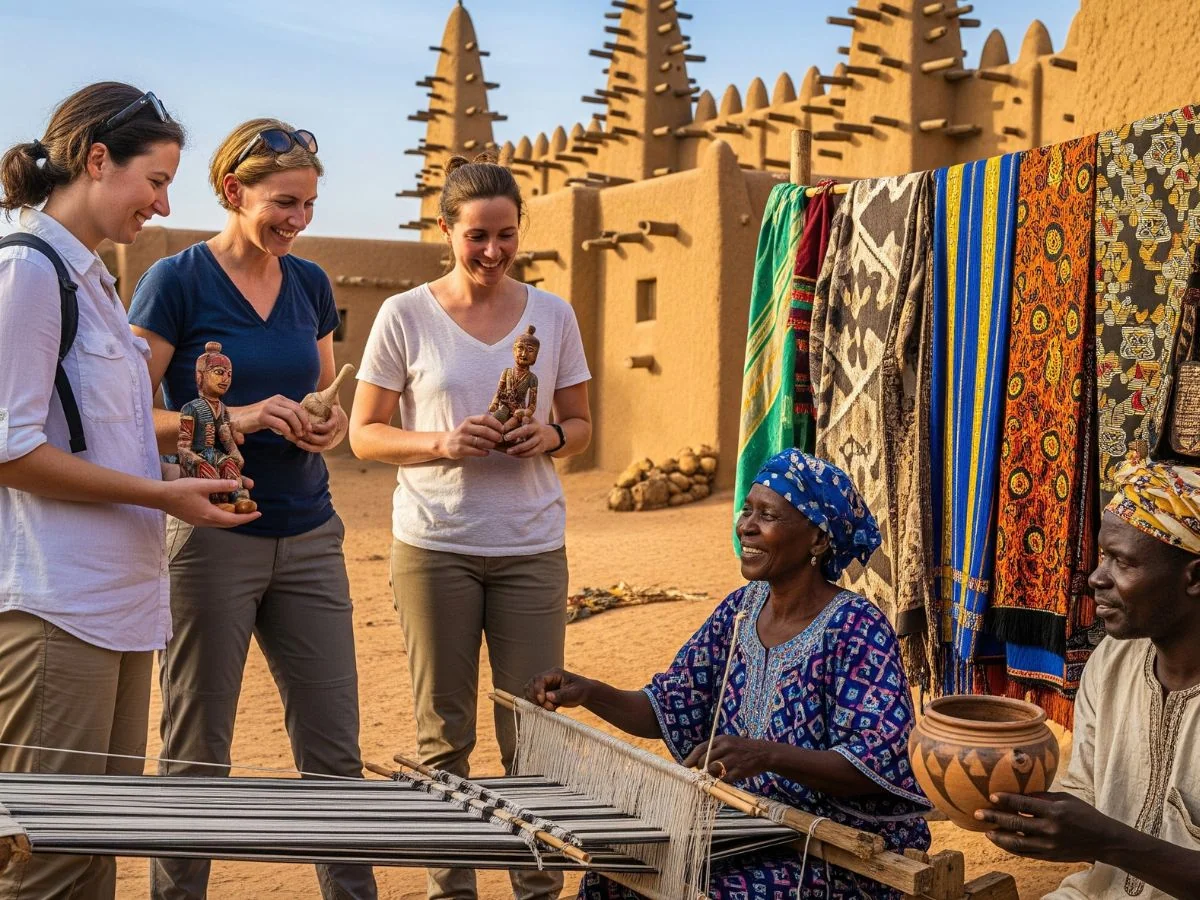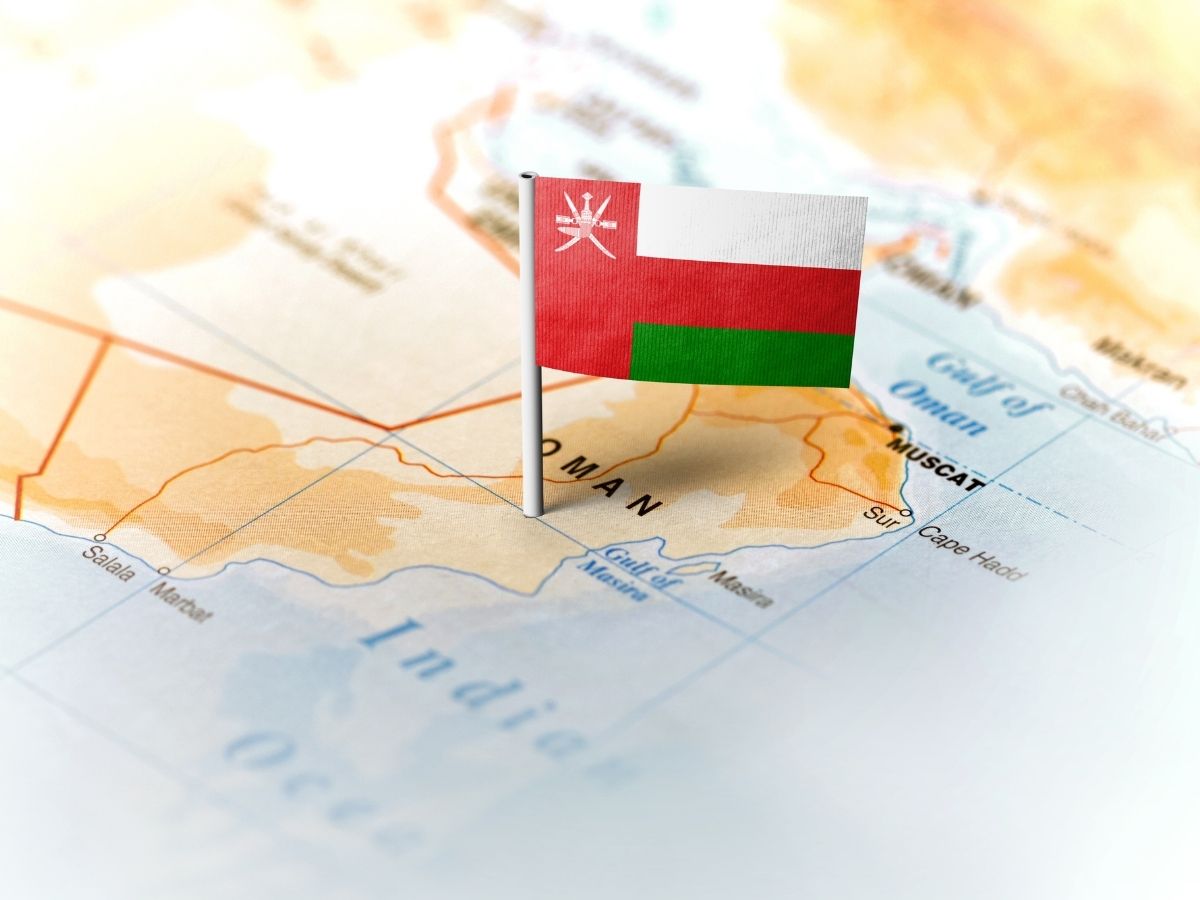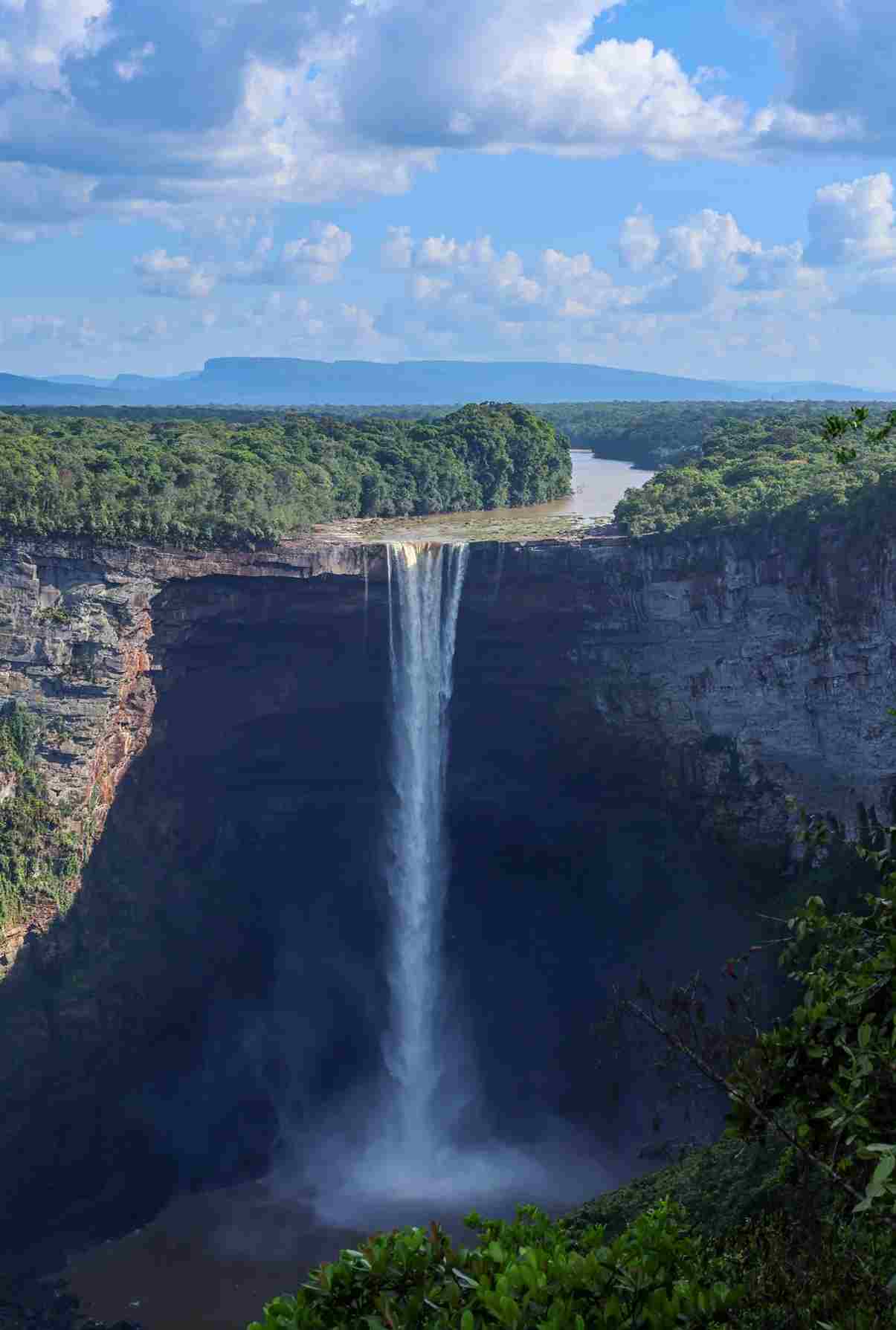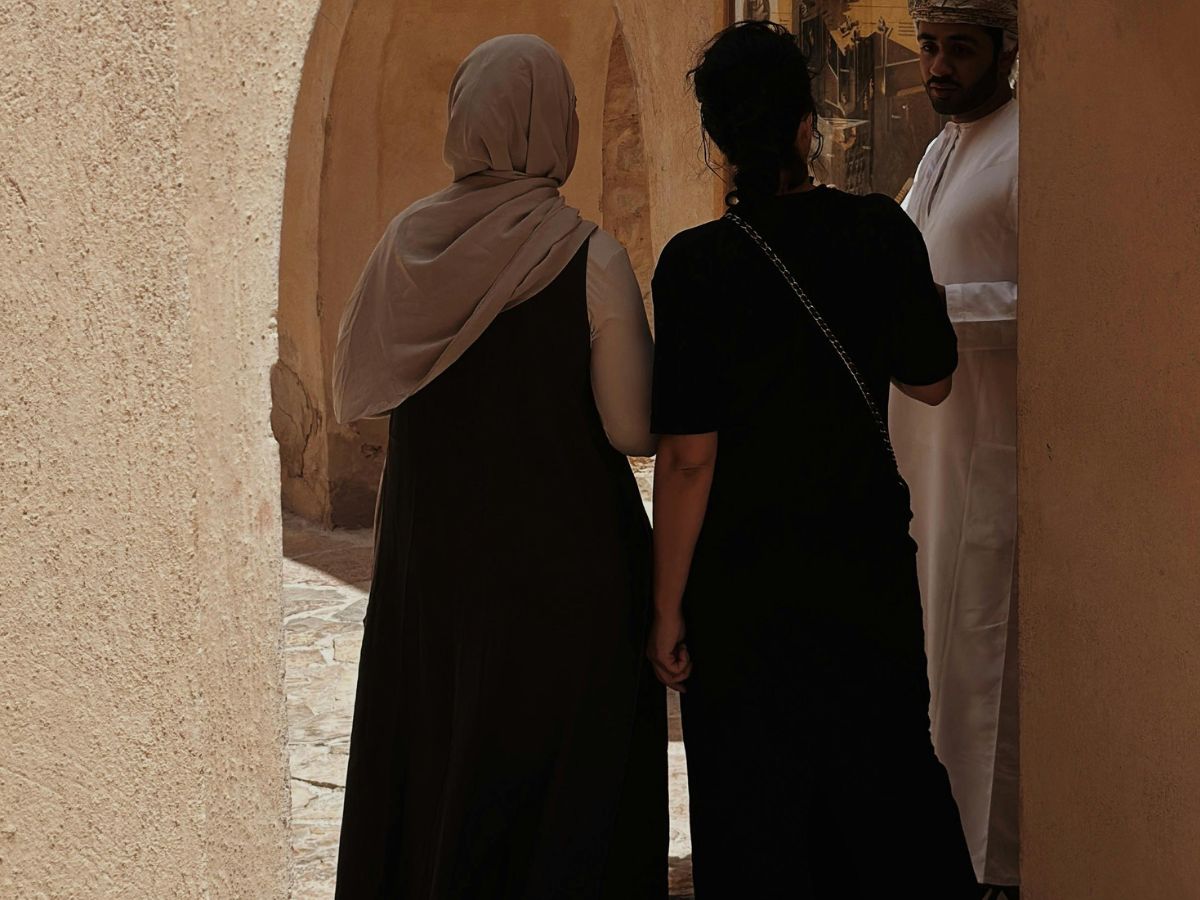Small group tours redefine the way you explore the world, offering a travel experience that’s as unique as the destinations themselves. With group sizes typically ranging from just 8 to 24 like minded travellers, these tours create an intimate atmosphere where every traveller feels included and engaged. Unlike larger groups, a small group allows you to connect more deeply with your fellow adventurers, forming friendships that often last long after the journey ends.
What truly sets small group tours apart is the ability to immerse yourself in the local culture and natural beauty of each destination. Whether you’re wandering through the ancient sites of Southeast Asia, marvelling at the stunning landscapes of the Scottish Highlands, or uncovering hidden gems in bustling cities and remote villages, you’ll experience the world in a way that’s both personal and profound. These tours are designed for those who crave authentic cultural experiences and want to explore beyond the well-trodden tourist path.
1. Access to Hidden Destinations That Large Groups Simply Cannot Reach
The most compelling advantage of small group tours lies in their ability to take you places that mass tourism simply cannot access. When you’re travelling with just 8-16 people, the world opens up in ways that remain impossible for larger groups.
Physical Limitations of Big Coach Tours
Consider the narrow, cobblestone streets of Ouidah in Benin, where authentic voodoo traditions have thrived for centuries. These atmospheric lanes, barely wide enough for a small vehicle, lead to sacred sites and local homes where traditional ceremonies still take place. A 50-seat coach would never navigate these ancient pathways, leaving mass tourists confined to modern areas that tell only part of the story.
Similarly, Guyana’s pristine rainforest lodges, accessible only by small aircraft or traditional boats, remain the exclusive domain of small group adventures. These remote eco-lodges offer unparalleled wildlife viewing opportunities, from giant river otters to rare bird species, in settings where larger groups would simply overwhelm the delicate ecosystem.
The traditional Tamberma villages in northern Togo, famous for their fortress-like clay architecture, can only accommodate small numbers of visitors at any given time. Their narrow village paths and limited infrastructure mean that intimate groups can experience daily life alongside local families, whilst larger tours must observe from a distance.
Even water-based destinations like Ganvie, the famous stilt village on Lake Nokoué in Benin, requires small boat access through shallow channels. These traditional pirogues can carry small groups directly into the heart of the community, where residents share their unique water-based lifestyle with visitors who arrive respectfully and in manageable numbers.
Exclusive Permissions and Local Relationships
Small group operators build lasting relationships with local communities over years of responsible tourism. These connections unlock experiences that simply aren’t available to larger commercial operations. Private voodoo ceremonies in West Africa, for example, are sacred events that require trust between practitioners and visitors – trust that can only be built through small, respectful groups.
Access to family-run establishments and local artisan workshops depends on these personal relationships. Small group tours allow for meaningful interactions and insights from locals, whether it’s learning directly from a master weaver in Togo who invites visitors to observe their craft, or engaging with local artisans who open their homes to guests, not customers. This level of intimacy becomes impossible when dealing with dozens of people at once.
2. Authentic Cultural Immersion Without the Tourist Bubble
Mass tourism creates an inevitable barrier between travellers and local communities. Small group tours break down these barriers, creating opportunities for genuine cultural exchange that transform passive sightseeing into an intimate experience of active participation.
Meaningful Local Interactions
When you arrive in a West African village as part of a small group, you’re welcomed as guests rather than observed as tourists. Local craftspeople have time to explain their techniques, share stories of their traditions, and demonstrate skills passed down through generations. These interactions become conversations rather than performances.
In Guyana’s remote rainforest communities, indigenous guides can share survival skills and traditional knowledge with small groups in ways that create genuine learning experiences. You’ll learn to identify medicinal plants, understand forest ecosystems, and appreciate indigenous worldviews through patient, personal instruction that large groups simply cannot accommodate.
Breaking Down Cultural Barriers
Small groups have the luxury of time – time to build trust with local communities, overcome language barriers through patient interaction, and develop understanding that goes beyond surface-level tourism. When village elders share oral histories or spiritual beliefs, they’re entrusting visitors with cultural treasures that require respect and genuine interest.
Cultural nuances that might seem confusing or contradictory to outsiders can be explored and understood through guided discussion and observation. Small group leaders can facilitate these cultural bridges, helping travellers appreciate complex traditions and social structures without judgement or oversimplification.
Group holidays foster deeper cultural understanding by encouraging meaningful connections with local people, while also supporting local economies through responsible travel choices.
3. Expert Guides Who Become Your Cultural Interpreters
The difference between a good tour guide and an exceptional one becomes most apparent in small group settings. When guides aren’t struggling to manage dozens of people, they transform from crowd controllers into cultural interpreters and local experts.
The Quality vs Quantity Advantage
Small group sizes allow guides to tailor their approach to individual interests and knowledge levels, ensuring more personalized attention for each traveler. If someone shows particular fascination with traditional architecture, guides can spend extra time explaining construction techniques and cultural significance. When another traveller asks about local wildlife, guides can adjust routes to maximise viewing opportunities.
Personal safety becomes much more manageable in challenging environments like rainforest expeditions or remote cultural sites. Guides can monitor each group member’s wellbeing, provide individual assistance when needed, and ensure everyone feels confident and secure throughout the adventure.
Beyond Basic Tour Commentary
Exceptional guides become living libraries of local knowledge. They provide historical context and share the rich history that brings ancient sites to life, explaining not just what happened, but why it mattered and how it continues to influence contemporary life. When exploring former slave ports in West Africa, guides can weave together economic, social, and spiritual threads that help visitors understand complex historical legacies.
Wildlife knowledge enhances every nature experience. Guides who can identify bird calls, track animal movements, and explain ecosystem relationships turn forest walks into fascinating lessons in biodiversity and conservation. In Guyana’s rainforests, expert guides reveal hidden wildlife that untrained eyes would never notice.
4. Flexibility to Embrace Spontaneous Adventures
Rigid schedules might work for mass tourism, but they kill the spirit of true adventure. Small group tours build flexibility into their itineraries, allowing for spontaneous discoveries that often become trip highlights.
This flexibility makes small group tours an excellent choice for adventure travel, where active and immersive experiences are a priority.
Seizing Unexpected Opportunities
When a small group shows genuine fascination with a particular location or activity, guides have the flexibility to extend visits and dive deeper into experiences. If traditional drummers in a Togolese village invite the group to join their evening practice, small tours can adjust schedules to embrace these magical moments.
Weather-dependent alternatives keep adventures exciting even when original plans change. Rainforest treks might shift to cultural village visits during heavy rain, or beach activities might move to indoor craft workshops. Small groups can adapt quickly and maintain enthusiasm for alternative experiences.
Seasonal wildlife sightings and migration patterns can be incorporated into itineraries when spotted by observant guides. The chance to witness rare bird migrations in West Africa or unusual primate behaviour in Guyana’s forests becomes possible when groups aren’t locked into inflexible schedules. Small group tours can also take advantage of natural highlights as they arise, ensuring travelers experience the most remarkable wildlife and scenic moments during their journey.
Personalised Pacing
Rest breaks when needed don’t hold up dozens of impatient tourists. Small groups naturally accommodate different energy levels and physical capabilities, ensuring everyone enjoys experiences without feeling rushed or left behind.
Optional activities cater to different fitness levels and interests without fragmenting the group experience. Some members might choose challenging rainforest hikes whilst others prefer cultural workshops, with both options enhancing the overall group dynamic rather than creating division.
Comfortable travel speeds allow for absorption of experiences rather than superficial touring. Small groups can stop for impromptu photography, pause to observe wildlife behaviour, or simply enjoy spectacular scenery without pressure to maintain unrealistic schedules.
5. Building Lasting Connections with Like-Minded Travellers
One of the unexpected joys of small group travel lies in the relationships formed with fellow adventurers. Unlike large tours where passengers remain anonymous, smaller groups create natural communities of like-minded explorers, making it easier to build lasting connections.
Quality Relationships Over Quantity
Intimate group sizes encourage genuine friendships rather than superficial acquaintanceships. When you’re sharing unique experiences with the same 8-15 people over days or weeks, natural bonds develop through common interests, shared challenges, and mutual support.
Diverse backgrounds within small groups enrich discussions and perspectives. Fellow travellers might include retired teachers, young professionals, experienced adventurers, and first-time explorers, creating fascinating conversations that enhance everyone’s understanding of destinations and cultures.
Post-Adventure Connections
Travel companion networks often extend far beyond individual trips. Many small group travellers discover compatible travel styles and interests, leading to future adventures together or valuable recommendations for independent travel.
Photo sharing and memory preservation becomes a collaborative effort that keeps trip experiences alive long after returning home. Group members often contribute different perspectives and images that create comprehensive records of shared adventures.
6. Exceptional Value That Goes Beyond the Price Tag
Small group tours often appear more expensive than mass market alternatives, but savvy travellers recognise exceptional value in the holiday price, which reflects transparent pricing and inclusions that extend far beyond simple price comparisons.
No Hidden Costs or Nasty Surprises
Transparent pricing eliminates budget uncertainties that plague independent travel. When operators like Undiscovered Destinations offer no compulsory single supplements, solo travellers avoid the hefty penalties that typically double accommodation costs. Entrance fees to key attractions are often included in the tour price, ensuring a seamless and hassle-free experience for travellers.
Group buying power secures better rates for activities and accommodation than individual travellers could negotiate. Small tour operators often have established relationships with local suppliers that provide access to exclusive experiences at reasonable costs.
Time Efficiency Equals Money Saved
Pre-arranged logistics eliminate countless hours of research, planning, and booking that independent travel requires. This time saving allows working professionals to maximise precious holiday days rather than spending evenings and weekends planning complex itineraries.
Skip-the-line access and priority bookings prevent wasted days waiting for popular attractions or searching for available accommodation. Small group operators secure advance reservations that independent travellers often cannot obtain.
7. Supporting Responsible and Sustainable Tourism
Environmental consciousness and social responsibility have become crucial considerations for thoughtful travellers. Small group tours inherently support more sustainable tourism practices than mass market alternatives.
For added peace of mind, our tours are ATOL protected, ensuring financial security and responsible travel arrangements for all our customers.
Lower Environmental Impact
Reduced carbon footprints per person result from shared transportation, whether using small buses for overland travel or charter flights that maximise passenger efficiency. Small groups require fewer resources whilst delivering superior experiences.
Support for eco-lodges and conservation projects becomes economically viable when small groups provide steady, sustainable visitor numbers. These facilities often cannot accommodate large groups without compromising their environmental missions.
Positive Community Impact
Direct economic benefits flow to local communities when small groups stay in family-run accommodation, eat at local restaurants, and purchase crafts directly from artisans. This economic impact creates sustainable livelihoods that don’t depend on exploitative mass tourism.
Fair wages for local guides and service providers become possible when operators can charge appropriate prices for quality experiences. Mass market tours often drive down wages through price competition that ultimately harms local communities.
The Small Group Experience: Accommodation and Meals
One of the hallmarks of small group tours is the thoughtful approach to accommodation and meals, ensuring that every aspect of your journey reflects the spirit and character of the places you visit. Rather than generic hotels, you’ll stay in handpicked lodgings that showcase the local culture and provide a welcoming home base for your adventures. Meals are more than just a necessity-they’re a chance to connect with your group, savour authentic flavours, and experience the heart of local life.
Unique Stays That Reflect Local Character
On a small group tour, where you stay is as much a part of the adventure as the destinations themselves. From charming boutique hotels to family-run guesthouses and eco-lodges, each accommodation is chosen for its character and connection to the local culture. Imagine waking up in Costa Rica to the sounds of the rainforest, surrounded by lush greenery and vibrant wildlife, or spending the night in a historic Scottish castle with panoramic views of rolling hills and lochs. These unique stays offer more than just comfort-they provide a window into the traditions, architecture, and hospitality of the region.
Shared Meals and Culinary Discoveries
Meals on a small group tour are about much more than just food-they’re a celebration of local culture and a highlight of the travel experience. Sharing meals with fellow travellers creates a sense of camaraderie and community, turning strangers into friends as you bond over new flavours and culinary adventures. Many tours include opportunities to dine at local restaurants, family-run eateries, or even in the homes of local hosts, giving you an authentic taste of regional cuisine.
Choosing Your Perfect Small Group Adventure
Not all small group tours deliver the same quality experiences. When considering your options, look for small group holidays, which typically feature 8 to 24 people, to ensure a more personalized and engaging adventure. Understanding what to look for helps ensure your investment yields the transformative adventure you’re seeking.
Matching Tours to Your Travel Style
Adventure levels range from gentle cultural exploration to challenging wilderness expeditions. Honest assessment of your physical capabilities, comfort zones, and interests ensures you choose experiences that stretch your boundaries without exceeding your limits.
If you are a nature lover, look for tours that focus on authentic wildlife experiences and immersive nature activities designed for those passionate about exploring natural environments.
Group size preferences matter more than many travellers realise. Groups of 8-10 people feel more intimate and allow for deeper friendships, whilst groups of 12-16 provide more diverse personalities and perspectives. Consider which dynamic appeals more to your social preferences.
What to Look for in Tour Operators
Established expertise and local knowledge distinguish professional operators from newcomers still learning their craft. Companies operating since 2004 or earlier have weathered economic downturns, built lasting local relationships, and refined their offerings through years of customer feedback. Many of these seasoned operators are known for their signature tours-flagship experiences that combine popular attractions with hidden gems, often in small group settings, to deliver unique and memorable journeys.
Conclusion: Why Your Next Adventure Should Be a Small Group Tour
Choosing a small group tour is about more than just seeing the sights-it’s about experiencing the world in a way that’s authentic, enriching, and truly unforgettable. With their perfect blend of cultural experiences, natural beauty, and local character, small group tours offer a travel experience that’s both personal and profound. Whether you’re a solo traveller seeking new friends, a couple looking for adventure, or a group of friends eager to explore together, you’ll find a welcoming and supportive environment on every journey.
With expert local guides and dedicated tour leaders, you’ll have the confidence to explore independently while enjoying the camaraderie of like minded travellers. There are no hidden extras or unexpected costs-just transparent pricing, optional extras to enhance your trip, and no single supplements for solo travellers. This means you can focus on making the most of every moment, from marvelling at stunning landscapes to delving into the heart of local culture.
Your passport to the world’s best-kept secrets is waiting. Join Undiscovered Destinations on carefully crafted small group adventures that reveal the authentic heart of extraordinary places.
